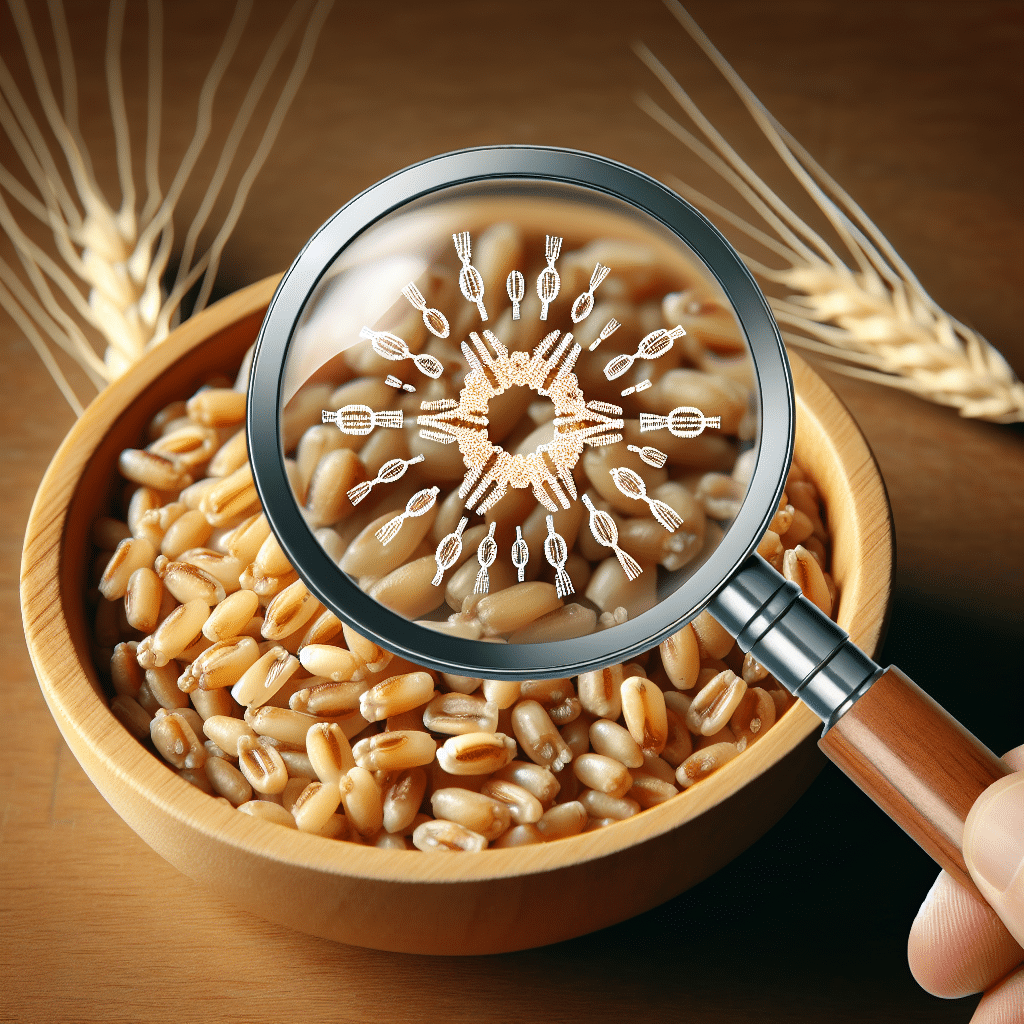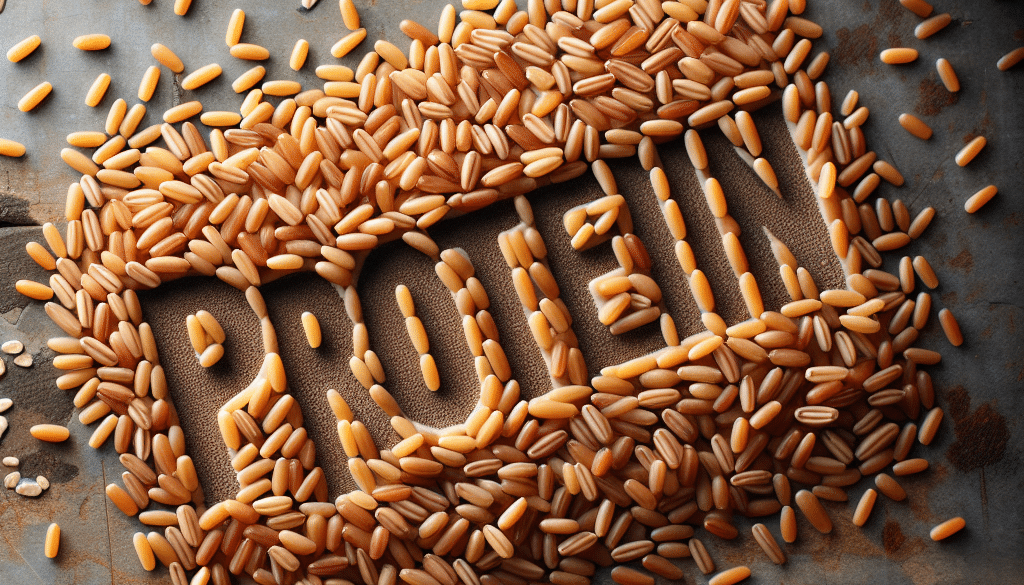Does Cooked Barley Have Protein?
-
Table of Contents
- Protein Content in Cooked Barley: A Comprehensive Analysis
- Understanding the Nutritional Profile of Barley
- Protein in Barley: Quantity and Quality
- Comparing Barley Protein to Other Grains
- The Role of Barley in a Balanced Diet
- Incorporating Barley into Your Diet
- Conclusion: The Protein Power of Cooked Barley
- Discover ETprotein’s Range of Protein Products
Protein Content in Cooked Barley: A Comprehensive Analysis

Barley is a versatile grain that has been a staple in many cultures’ diets for thousands of years. It’s known for its nutty flavor and chewy consistency when cooked, and it’s often used in soups, stews, salads, and even as a rice substitute. But beyond its culinary uses, barley is also recognized for its nutritional benefits, including its protein content. In this article, we’ll delve into the question: Does cooked barley have protein? We’ll explore the protein content in barley, its quality, and how it compares to other grains and protein sources.
Understanding the Nutritional Profile of Barley
Before we can answer the question of protein content in cooked barley, it’s important to understand the overall nutritional profile of this grain. Barley is a whole grain that is rich in fiber, vitamins, minerals, and antioxidants. It’s particularly high in soluble fiber, which can help lower cholesterol levels and improve heart health. Additionally, barley contains important minerals such as magnesium, manganese, and selenium.
Protein in Barley: Quantity and Quality
When it comes to protein, barley does indeed contain this essential macronutrient. The amount of protein in barley can vary depending on the type of barley and how it’s processed. Hulled barley, which has only the outermost hull removed, retains more of its nutritional value, including protein, compared to pearled barley, which has been polished to remove the bran layer as well.
- Hulled barley typically contains about 10-12 grams of protein per 100 grams of dry grain.
- Pearled barley contains slightly less protein, with about 8-10 grams per 100 grams of dry grain.
When cooked, the protein content in barley changes slightly due to the absorption of water. However, the difference is not significant enough to affect its status as a protein source. A cup of cooked hulled barley can provide approximately 3.5 grams of protein, making it a decent source for those looking to increase their protein intake through plant-based foods.
Comparing Barley Protein to Other Grains
When compared to other grains, barley holds its own in terms of protein content. Here’s how barley stacks up against some other common grains per 100 grams of cooked grain:
- Quinoa: approximately 4.1 grams of protein
- Brown rice: approximately 2.6 grams of protein
- Oats: approximately 2.5 grams of protein
While quinoa is often hailed as a superior protein source among grains, barley is not far behind and can be a more cost-effective option for many consumers.
The Role of Barley in a Balanced Diet
Barley can play a significant role in a balanced diet, especially for vegetarians and vegans who may be looking for diverse protein sources. Its high fiber content also makes it beneficial for digestive health, and its array of vitamins and minerals contribute to overall nutrition.
However, it’s important to note that barley, like most plant-based proteins, does not contain all essential amino acids in sufficient quantities to be considered a complete protein. This means that while barley can contribute to your daily protein needs, it should be consumed as part of a varied diet that includes other protein sources to ensure all essential amino acids are obtained.
Incorporating Barley into Your Diet
There are many ways to incorporate barley into your diet to take advantage of its protein content. Here are a few ideas:
- Add cooked barley to soups and stews for added texture and nutrition.
- Use barley as a base for grain bowls, topped with vegetables, beans, and a protein source like tofu or chicken.
- Make a barley salad with chopped vegetables, herbs, and a tangy dressing.
- Use barley flour in baking to add a nutritional boost to breads and other baked goods.
Conclusion: The Protein Power of Cooked Barley
In conclusion, cooked barley does contain protein, making it a valuable addition to any diet, especially for those seeking plant-based protein sources. While it may not be a complete protein on its own, it can contribute significantly to your daily protein intake when combined with other foods. Barley’s additional health benefits, such as its high fiber content and rich nutrient profile, make it an excellent grain to include in your meals.
Discover ETprotein’s Range of Protein Products
If you’re looking to supplement your diet with high-quality protein products, consider exploring ETprotein’s offerings. ETprotein is a reputable manufacturer and supplier of organic bulk vegan proteins and L-(+)-Ergothioneine (EGT). Their product range includes organic rice protein, pea protein, and various seed proteins, all characterized by a neutral taste, non-GMO, and allergen-free attributes. With purity levels over 98%, ETprotein’s products are suitable for a wide range of industries, including nutraceuticals, pharmaceuticals, and food and beverage.
For those interested in incorporating more plant-based proteins into their diet or developing products that cater to health-conscious consumers, ETprotein provides comprehensive solutions to meet all your protein needs. Contact them at sales(at)ETprotein.com to learn more or to request samples.
About ETprotein:
ETprotein, a reputable protein and L-(+)-Ergothioneine (EGT) Chinese factory manufacturer and supplier, is renowned for producing, stocking, exporting, and delivering the highest quality organic bulk vegan proteins and L-(+)-Ergothioneine. They include Organic rice protein, clear rice protein, pea protein, clear pea protein, watermelon seed protein, pumpkin seed protein, sunflower seed protein, mung bean protein, peanut protein, and L-(+)-Ergothioneine EGT Pharmaceutical grade, L-(+)-Ergothioneine EGT food grade, L-(+)-Ergothioneine EGT cosmetic grade, L-(+)-Ergothioneine EGT reference grade and L-(+)-Ergothioneine EGT standard. Their offerings, characterized by a neutral taste, non-GMO, allergen-free attributes, with L-(+)-Ergothioneine purity over 98%, 99%, cater to a diverse range of industries. They serve nutraceutical, pharmaceutical, cosmeceutical, veterinary, as well as food and beverage finished product distributors, traders, and manufacturers across Europe, USA, Canada, Australia, Thailand, Japan, Korea, Brazil, and Chile, among others.
ETprotein specialization includes exporting and delivering tailor-made protein powder and finished nutritional supplements. Their extensive product range covers sectors like Food and Beverage, Sports Nutrition, Weight Management, Dietary Supplements, Health and Wellness Products, and Infant Formula, ensuring comprehensive solutions to meet all your protein needs.
As a trusted company by leading global food and beverage brands and Fortune 500 companies, ETprotein reinforces China’s reputation in the global arena. For more information or to sample their products, please contact them and email sales(at)ETprotein.com today.












